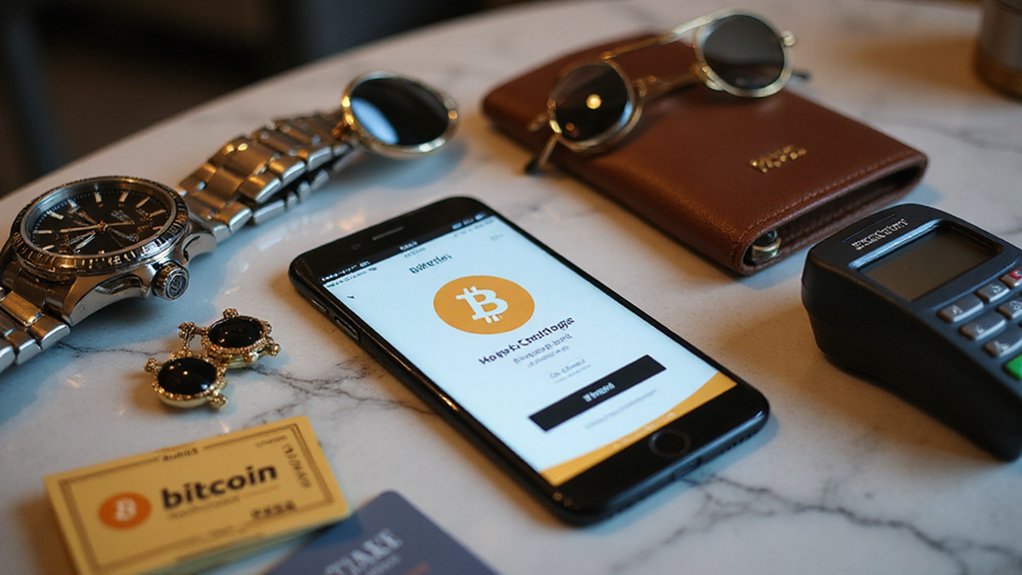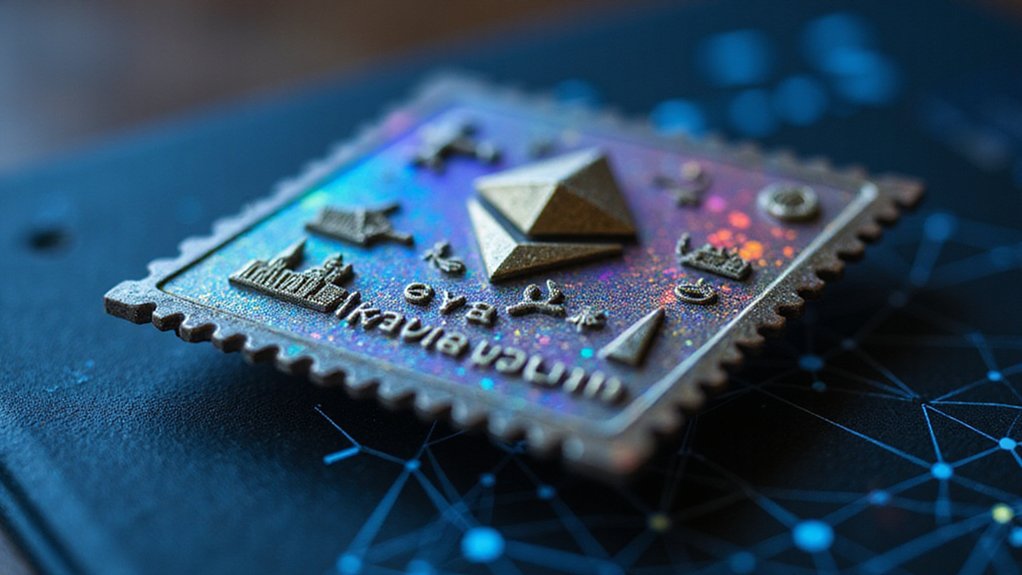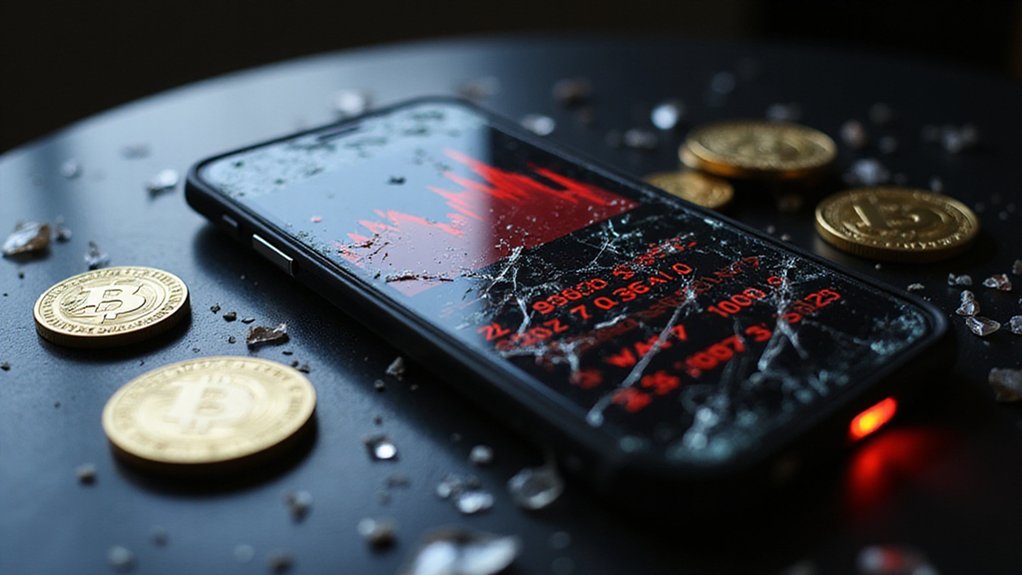Bitcoin’s purchasing power has expanded well beyond its cryptic origins, now spanning tech marketplaces (Newegg, Microsoft), luxury retailers (Ralph Lauren, Ace Jewelers), travel services via BitPay, and even daily necessities through conversion apps. Financial services cautiously accommodate cryptocurrency transactions while entertainment venues increasingly accept digital tender. The practical utility of Bitcoin oscillates between revolutionary potential and novelty status—a dichotomy that may resolve as regulatory frameworks mature and merchant adoption stabilizes. The evolution continues.

Where exactly can one spend those digital coins that have experienced such meteoric rises (and occasional plummets) in value?
It turns out that Bitcoin’s utility extends far beyond speculative investment vehicles; numerous retailers and service providers now accept this cryptocurrency as legitimate tender.
The digital marketplace has expanded considerably, with electronics giants leading the charge.
Tech titans have pioneered the cryptocurrency frontier, transforming Bitcoin from investment curiosity to legitimate tender across digital storefronts.
Newegg has become a haven for tech enthusiasts wielding Bitcoin wallets, while even corporate behemoths like Microsoft permit account top-ups using the cryptocurrency, allowing for purchases across their digital ecosystem (though one might question whether gatekeeping virtual goods behind virtual currency represents progress or merely digital recursion). Savvy consumers can also leverage arbitrage opportunities when making purchases across different platforms, similar to strategies used in Bitcoin trading.
The luxury sector hasn’t remained impervious to cryptocurrency’s allure.
Ralph Lauren and high-end watch retailer Jomashop now accommodate the Bitcoin-affluent, while numerous Shopify-powered boutiques have integrated cryptocurrency payment options. Companies like Ace Jewelers have embraced the digital currency revolution, allowing customers to purchase watches and jewelry online using Bitcoin. This development suggests an interesting correlation between those who accumulated wealth through cryptocurrency speculation and their subsequent desire to convert these gains into tangible symbols of status—a digital-to-physical transformation of value that warrants sociological examination.
For the peripatetic Bitcoin holder, travel opportunities abound.
While Expedia‘s direct Bitcoin acceptance has wavered, alternative booking platforms and BitPay Travel facilitate cryptocurrency transactions for flights and accommodations. The growth of Lightning Network has significantly improved transaction speeds, making Bitcoin more practical for everyday travel purchases. One might even enjoy a post-journey Starbucks beverage, loading one’s card via Bakkt, or procure organic provisions at Whole Foods through the Spedn app—though the irony of using a decentralized currency through centralized payment processors remains palpable.
Entertainment seekers can secure concert tickets, sporting event access, and theatrical performances through Bitcoin-friendly ticketing platforms.
Even insurance providers and financial services firms have cautiously entered the cryptocurrency sphere, though their participation often comes with regulatory asterisks and procedural complexities.
The question remains whether these adoption patterns represent cryptocurrency’s gradual normalization or merely constitute corporate experimentation with alternative payment methods—a distinction that may ultimately determine Bitcoin’s fate as either revolutionary tender or cautionary financial footnote.
Frequently Asked Questions
How Do I Get Bitcoins?
Individuals can procure Bitcoin through several established channels: cryptocurrency exchanges (Coinbase, Crypto.com), peer-to-peer transactions, accepting it as payment for goods or services, or—for the technically inclined with surplus electricity—mining.
Most newcomers opt for exchanges, where they simply create an account, verify identity, connect payment methods, and purchase Bitcoin in fractional amounts.
No need to acquire an entire coin; even minuscule purchases are permissible within this decentralized financial ecosystem.
Is Bitcoin Legal in All Countries?
Bitcoin isn’t legal everywhere—119 countries and 4 British Overseas Territories officially permit it, while others like China, Bolivia, and North Macedonia explicitly ban cryptocurrency activities.
El Salvador has gone furthest in the opposite direction, recognizing Bitcoin as legal tender.
Many jurisdictions exist in regulatory gray areas, with 20 countries imposing banking restrictions on crypto transactions while tacitly allowing ownership.
The regulatory landscape continues evolving rapidly as governments grapple with this financial innovation’s implications.
Can I Convert Bitcoin Back to Regular Currency?
Yes, Bitcoin can readily be converted back to fiat currencies through various channels.
Cryptocurrency exchanges (Coinbase, Binance) offer the most straightforward method, though P2P platforms, Bitcoin ATMs, and wire transfers present viable alternatives.
Each conversion method entails varying fee structures and processing times—an unavoidable friction in the crypto-to-fiat pipeline.
Prudent converters should vigilantly monitor market conditions, as Bitcoin’s notorious volatility can substantially impact exchange rates during even brief conversion windows.
How Volatile Is Bitcoin’s Value?
Bitcoin’s volatility, while historically extreme, has been exhibiting a notable downward trajectory.
Its one-year realized volatility dipped below 50% in 2023—only the fifth such occurrence in its history—yet still towers approximately four times higher than gold (12%) and global equities (10.2%).
The 2024 landscape reveals a maturing asset; Bitcoin crossed $60,000 with considerably subdued volatility compared to 2021’s equivalent price point, suggesting institutional participation may be tempering Bitcoin’s infamous price gyrations.
Are Bitcoin Transactions Anonymous?
Bitcoin transactions aren’t truly anonymous, but rather pseudonymous—a distinction that eludes many enthusiasts.
While transactions occur between addresses rather than identifiable individuals, the blockchain’s transparent nature creates a permanent, public record of every transfer.
Analytical tools can link addresses to real identities through clustering techniques, exchange data, and IP tracking.
Users seeking enhanced privacy often employ mixing services, P2P marketplaces, or Bitcoin ATMs, though these measures merely obfuscate rather than eliminate the transaction trail entirely.









